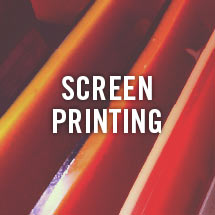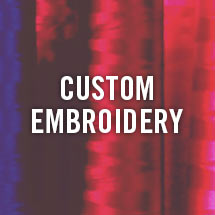Custom embroidery can add a stylish touch to any item. From T-shirts to baseball caps, embroidery’s look and durability have made it a popular decorative choice for decades (and even centuries). But as embroidery experts know, not all materials are created equal when it comes to getting the perfect stitch.
While many custom apparel items can be embroidered, there are several factors to take into consideration when selecting one.
Here’s a simple guide to choosing the best fabric for embroidery.
Why Does it Matter?
Embroidery, even machine embroidery, is a delicate process and designs will look different on different fabrics. That’s why embroiderers take more than just the look and feel of a given material into account. They also consider the construction of the material itself when choosing a fabric for embroidery projects.
Most fabrics, including cotton, silk, linen and wool, are woven, but their durability depends on how tightly the material is woven together. The weave of a given fabric is also referred to as its thread count. Non-woven fabrics, such as felt, are very sturdy and don’t stretch much at all.
Tricky Fabrics
If the weave of a given material isn’t very tight, it can make embroidery tricky. Fabric that isn’t strong enough to hold up under the weight of the design can pucker or even tear. That’s why knits and other light fabrics are often tough fabrics for this process.
Don’t lose all hope with these fabrics, however. Many embroiderers use an additional piece of material called a stabilizer that helps support designs on flimsy fabrics. Some people refer to it as backing. Stabilizers are often used to embroider knit T-shirts without puckering or other issues.
Some heavy designs with dense stitching are just too heavy for knit fabrics, even with the added assistance of stabilizers.
Strong Fabrics
So which fabrics are the go-to choice when it comes to embroidery? Cotton, linen, silk and wool are all popular choices because they are tightly woven fabrics. This creates a stable surface – perfect for embroidery. These fabrics can support denser and more complex patterns than lightly woven fabrics.
Cotton is often a popular choice for embroidering handkerchiefs, T-shirts and aprons. Jersey fabric is a bit stretchier, but is usually made from some combination of cotton, wool and synthetic fabrics, which makes it another great choice of fabric for embroidery (especially with the help of a stabilizer). Cotton/polyester blends are another great T-shirt option with more breathability than cotton.
Other Considerations
As with any custom apparel item, there are a number of things to take into consideration beside fabric for an embroidered item. You also should think about the color contrast between the thread and fabric of your item. Delicate embroidery may not be very visible on low contrast color combinations.
It’s also important to think about the size of your design on the item itself. A tiny embroidered logo might look great on a baseball cap, but will get lost in the fabric of a T-shirt or jacket.
Embroidery is a delicate art, which is why it’s a good idea to consult the experts for the best possible result.
The experienced team at Full Press Apparel is here to help you choose the best fabric for your custom items, as well as the colors, design and desired look.
Interested in an embroidered custom apparel item but have no idea where to start? Give us a call today at (850) 222-1003 to learn what we could create for you!





